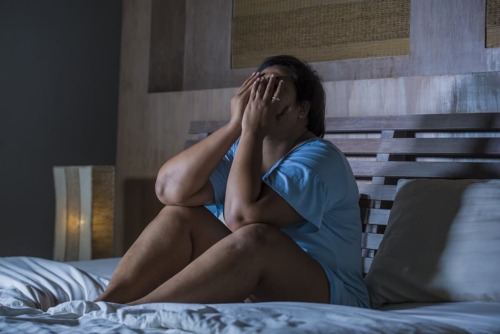Dangers of Drug Withdrawal Symptoms

Addiction can control everything you do in life. There comes a point in most people’s addiction when they realize they need help. They realize they can not allow their addiction to take over their lives any longer. This is the point where you decide to quit using drugs. However, you are apprehensive about the drug withdrawal symptoms. Are they as bad as some people say? What can you do to make it through this part of recovery pain-free? It is important to know about medical detox and the hurdles you will have to face during this challenging chapter of your recovery.
What Causes Drug Withdrawal Symptoms?
The chemicals in the drugs you take gradually change your body. In most cases, they affect the way the brain releases neurotransmitters. For example, some drugs make neurotransmitters release possible only with the specific chemicals in the body. Others prevent the central nervous system from sending impulses to the brain.
When drug use stops, the body seeks to regain balance. This process takes a few days. It’s also a painful experience as the central nervous system comes back online. Moreover, the absence of proper neurotransmitter regulation can result in adverse physiological and psychological responses.
Typical Drug Withdrawal Symptoms You Might Experience
Drug withdrawal isn’t a consistent experience. For example, people working on overcoming alcohol abuse may experience shaking hands, chills, and gastrointestinal upset. The most dangerous withdrawal symptoms include seizures and delirium tremens (DTs), which won’t affect everyone.
Opiate withdrawal comes with severe muscle cramps and unstable blood pressure. You endure physical pain. Some people experience sweating and then chills, one right after the other. The severity of the symptoms depends on your overall health and length of time abusing the drug. No detox experience will be the same as someone else’s. It is important to remember that you may not experience the same issues as someone else. However, it should be taken seriously regardless.
Why You Need Professional Help to Deal with Drug Withdrawal Symptoms
Addiction is a disease. As a result, the drug withdrawal symptoms are manifestations of the illness. When you decide to stop using, you don’t have to do so with pain. Because some symptoms are dangerous, it’s vital to have medical professionals monitor your progress.
But there are other reasons, too. When the discomfort gets too strong, it’s easy to forget about your plans for sobriety. Relapse is so tempting! However, with the support of therapists who care about your outcome, you are more likely to persevere.
Detox typically takes place at a facility. It involves treatments such as:
- Medical detox that protects your health and keeps you comfortable
- Pharmacological support, which helps your body to regain equilibrium in safety
- Addiction therapy services that enable you to understand why you’re going through withdrawal and how to transition to rehab
- Smooth transition to rehab for psychotherapy and a chronic pain recovery program
- Aftercare program, which ensures that you implement the coping skills you learned during treatment
It’s usually a good idea to select a facility that offers detoxification and rehab at the same location. When you participate in this type of program, you prevent the lag time between medical and clinical care, which caters to a relapse.
Get Help From Kemah Palms Today
Addiction affects millions of Americans every year. If you are ready to take the steps towards a better future, Kemah Palms can help. We offer a number of addiction treatment programs including:
- Family therapy
- 12 step recovery
- Meditation therapy
- Relapse prevention therapy
- Dialectical behavioral therapy
When you’re ready to flip the script on your life, rehab is the answer. You don’t have to continue suffering from an addiction. Don’t let the fear of drug withdrawal symptoms keep you from reaching out. Call [Direct] today to connect with the caring therapists at Kemah Palms Recovery®.
